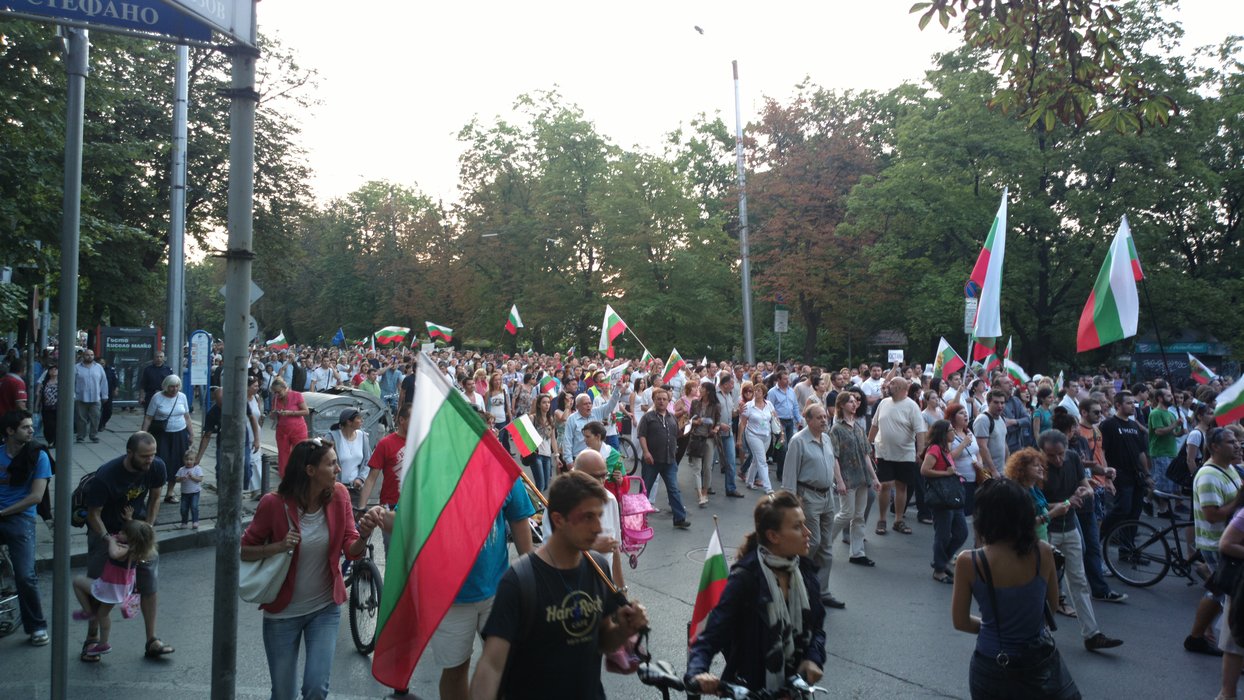
Freedom of peaceful assembly
Sofia between “This is not Moscow!” and “Bulgaria out of EU and NATO” protests
On 21st May, the pro-Russian party Vazrazhdane (Revival) held a rally in Sofia, attended by an estimated 1,000 people. Revival party leader Kostadin Kostadinov accused the EU of interfering in Bulgaria's internal affairs, claiming that it had turned the country into a “colony of the USA”. Several other movements joined the protest. The demonstrators displayed Russian flags and threw blood-red paint at the House of Europe, which houses the local offices of EU institutions.
The protests in Sofia continued until the end of May. On 30th May, a rally in support of a European Bulgaria and against President Roumen Radev took place in the capital. Several thousand demonstrators gathered in Sofia to protest against Radev, whom they accused of siding with Moscow in the ongoing war against Ukraine, due to his outspoken stance against sanctioning Russia and refusal to supply arms to Kyiv. The protesters called him a “disgrace” and a “servant of Russia” and demanded his resignation from the presidency, chanting “Resign” and “This is not Moscow!” The protesters expressed their support for the coalition "We Continue the Change/Democratic Bulgaria", which received its second mandate to form a government following the April 2023 elections, and reiterated their support for the country’s membership in the EU and NATO. In response, a group of organisations, including "Bulgaria out of EU and NATO,” MIR and BROD, held a protest rally the next day demanding that the second mandate to form a government be returned unfulfilled. The rally’s organisers described it as a "protest for sovereignty and the rule of law in Bulgaria."
Freedom of expression
Bulgarian journalists hold discussion on the European Media Freedom Act
At the end of June, the Bulgarian Journalists' Association organised a public debate on the upcoming adoption of the European Media Freedom Act (EMFA), a groundbreaking legislative proposal to regulate the EU media sector. The EU is expected to vote on the act in autumn 2023, but an exact date has not yet been set. As the draft is still open for comments, the Bulgarian Journalists' Association has invited its members to submit their suggestions for amending the document, underlining the need to actively engage with a document that will be binding on all EU member states once adopted.
During the debate, participants drew attention to various concerns about the EMFA, echoing criticism from the European Federation of Journalists. These include the possibility of overriding the protection of journalistic sources in the interests of “national security” and other amendments that they believe weaken the impact of the proposal. MEP Elena Yoncheva, one of the initiators of the bill, expressed optimism about the possible positive impact on press freedom in Bulgaria: “The deterioration of the media environment in the European Union, especially in Bulgaria, is not news to anyone. The pressure on journalists, the interference of business and politics in the editorial decisions of the media and the lack of transparency in terms of ownership and sponsorship are only a fraction of the problems we have to tackle. This fight will not be won at the national level.”